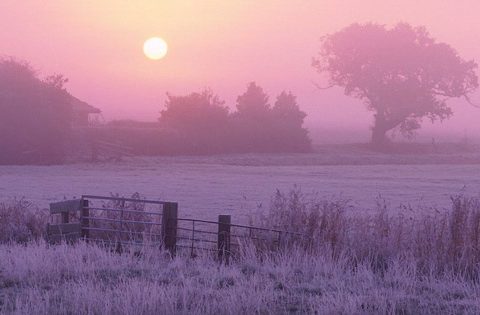
The Gardner Agriculture Policy Program is funded by the Leonard and Lila Gardner/Illinois Farm Bureau Family of Companies endowment. This generous gift is dedicated to the memory of Len Gardner, a leading voice on agricultural policy for decades. The program will coordinate and prioritize analytical and outreach efforts for farm, conservation and international trade policies, elevating the University of Illinois’ voice in the national debate.
The cover crop project seeks to provide farmers with a practical web-based decision support tool designed to help manage cover crops in their fields. The project makes use of existing research to demonstrate the potential for cover crops, as well as providing useful information for decision making and management of this practice. It will also seek to apply future research on cover crops as results are incorporated into updates and new iterations of the tool. This remains a work in progress with a goal towards adapting with the science.
Latest in Gardner Policy Series

Off-Base, Part 3: Picking Winners & Losers with Policy
Old Man Winter, that popular personification of less-than popular weather, struck again this week and may have more in store (see, NPR, January 27, 2026; Ghaffar, January 27, 2026; Rucker…
The Reconciliation Farm Bill: Top Five Most Problematic Changes to Farm Policy, #4
The number four spot in the top five most problematic changes to farm policy in the Reconciliation Farm Bill belongs to possibly the most obscure change in the agriculture title. Congress provided an additional subsidy to crop insurance companies to encourage continued sales of policies in high-risk states. This article explains the policy change and offers some perspective.
Projections of Commodity Program Payments for Illinois in 2024 and 2025
Commodity program payments for 2024 are estimated to be limited to ARC-CO in some southern and northern Illinois counties for corn and soybeans. Commodity title program payments seem more likely to occur for the 2025 commodity title program. Even with the larger payment expectations, due in part to changes to commodity programs in the OBBB Act, 2025 return prospects remain negative for cash rented farmland in Illinois. This could lead to calls for additional ad hoc support for 2025.
The Farm Bill in Reconciliation: Loophole as Rosetta Stone; Review and Comment
As of July 4, 2025, budget reconciliation, bearing the title “One Big Beautiful Bill Act,” is Public Law. Among its many provisions are revisions to the major mandatory programs of the Farm Bill, reauthorizing them through 2031. Rushed through Congress under special budget procedures and a dearth of deliberation, much about this new federal law remains confusing and dismaying. This article reviews an expanded loophole for farm program payment limitations as a potential Rosetta Stone.
U.S. Corn and Soybean Exports: Diversification Drives Growth in Corn and Cushions Decline in Soybeans
The U.S. agricultural export scenario has experienced a transformation in 2025, with diversification of export destinations emerging as an important factor for both the corn and soybean markets. While these two major commodities have followed different trajectories, with corn exports expanding and soybean exports contracting, both demonstrate the strategic value of diversified market portfolios rather than keeping a high dependence on a single market.
Brazil Begins Planting with Expected Record Acreage Driven by High Demand but Low Margins
Farmers across Brazil have begun planting the 2025/26 crop season, with expectations for another record in corn and soybean acreage. In its preliminary estimate released on October 14, Conab projected that Brazil’s soybean acreage will increase by 3.5%, reaching 121 million acres – the largest area on record. Like soybeans, Brazilian corn acreage is also expected to expand by 4% in the 2025/26 season, reaching 56 million acres, according to Conab’s initial estimates.
U.S. Soybean Harvest Starts with No Sign of Chinese Buying as Brazil Sets Export Record
The U.S. soybean harvest began in September without any orders from the world’s largest buyer: China. American producers are harvesting a crop the U.S. Department of Agriculture (USDA) estimates at…
Regional Cost of Living Differences
Supply chain disruptions, market concentration, global trade shocks, and housing shortages push issues related to affordability and the cost of living to the forefront. However, these pressures are not experienced uniformly; substantial regional cost of living differences shape how households navigate their daily expenses. These disparities can influence overall well being and exacerbate economic inequality, particularly in high cost metropolitan areas.
Farmer Demonstration Networks as a Catalyst for Conservation Adoption
Cover crop use in the Corn Belt remains low, despite significant public and private investment in efforts to support adoption. The US Department of Agriculture alone invests $6.5 billion annually into conservation programs, many of which focus entirely on support payments rather than technical support. Our results suggest that demonstration farm networks, led by real farmers trialing practices on their working farms, are an effective tool to share information with conservation-curious producers.
Swampbuster Stands, Part 2: The Constitutionality of Conservation Compliance
“It is hardly a lack of due process for the Government to regulate that which it subsidizes” (Wickard v. Filburn, 1942). That admonition from Justice Robert Jackson, writing for a…






